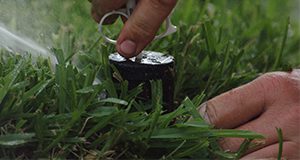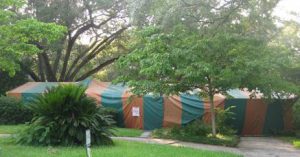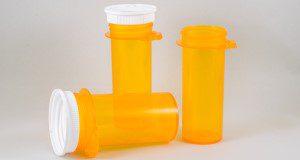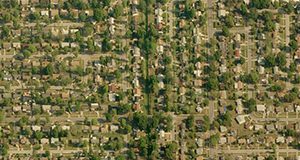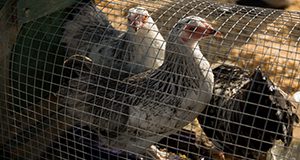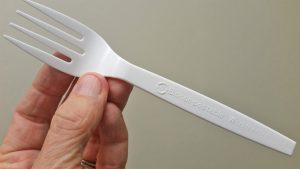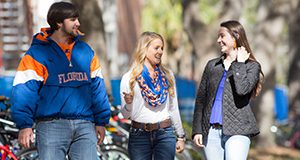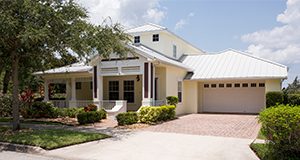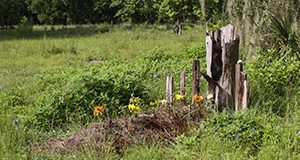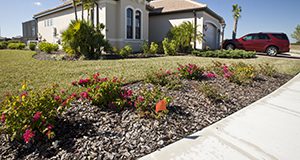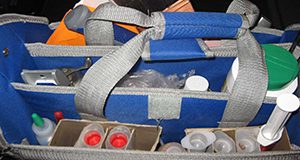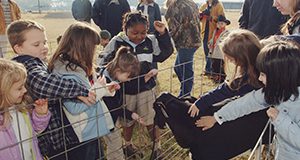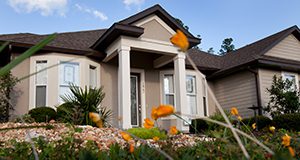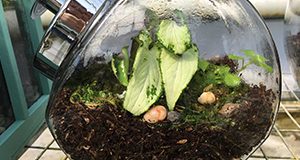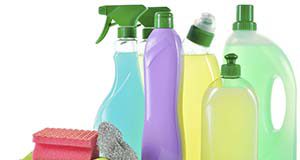This 1-page document provides general information regarding disaster assistance and links to online resources for taxpayers affected by a federally declared disaster. Written by Jorge Ruiz-Menjivar and Heidi Copeland, and published by the UF/IFAS Department of Family, Youth and Community Sciences, revised September 2020.
https://edis.ifas.ufl.edu/fm259
Category: House & Home
Florida H2OSAV Insights: Home Water Use in the Gainesville Regional Utilities (GRU) Service Territory
This 6-page fact sheet discusses basics about water consumption for single-family, detached homes served by Gainesville Regional Utilities, information about the highest water users, and impacts of irrigation on water consumption. Written by Nick Taylor, Kaitlin Olander Robb Price, Bradley Spatz, Tricia Kyzar, and Pierce Jones, and published by the UF/IFAS Department of Agricultural and Biological Engineering, September 2020.
https://edis.ifas.ufl.edu/ae544
Termite Prevention and Control
This 16-page guide written by F. M. Oi, J. Davis, J. McConnell, J. Corbus, N. Nelson, and M. Atkinson and published by the UF/IFAS Entomology and Nematology Department is intended to help homeowners make informed choices about the best termite protection for their homes.
https://edis.ifas.ufl.edu/in1277
Adecuado lavado de manos para cuidadores
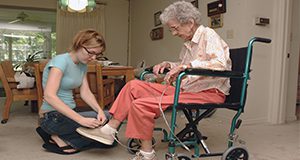 El lavado de las manos es una forma importante de reducir la transferencia fecal-oral de gérmenes que causan enfermedades. Los niños pequeños y los ancianos con limitaciones tienen menos capacidad para combatir los gérmenes que otras personas. Como cuidador, usted puede ayudar a reducir el riesgo de transmisión de enfermedades en ambientes con multitudes mediante el uso de los adecuados procedimientos de lavado de manos. This is the Spanish language version of Proper Hand Washing for Caregivers (FCS8782Eng/FY724).
El lavado de las manos es una forma importante de reducir la transferencia fecal-oral de gérmenes que causan enfermedades. Los niños pequeños y los ancianos con limitaciones tienen menos capacidad para combatir los gérmenes que otras personas. Como cuidador, usted puede ayudar a reducir el riesgo de transmisión de enfermedades en ambientes con multitudes mediante el uso de los adecuados procedimientos de lavado de manos. This is the Spanish language version of Proper Hand Washing for Caregivers (FCS8782Eng/FY724).
https://edis.ifas.ufl.edu/fy1486
How to Properly Dispose of Unwanted Medications
Properly disposing of expired or unused medications can help reduce the prevalence of prescription drug abuse in Florida. It also helps prevent accidental ingestion by children or pets, helps prevent accidentally taking the wrong medication, and prevents medications from entering water sources. This new 3-page publication of the UF/IFAS Department of Soil and Water Sciences provides some dos and don’ts for disposing of your medications. Written by Alexander J. Reisinger.
https://edis.ifas.ufl.edu/ss680
Residential Irrigation Water Costs in Osceola County and Orange County, Florida
Interest in understanding water use and irrigation costs has risen in recent years. This case study is a 5-page evaluation of water use and associated costs for residential landscape irrigation in Osceola County and Orange County, Florida. Homeowners in central Florida can use the results to assess their water consumption and bills in relation to similar homes in the area. Written by Nick Taylor, Tricia Kyzar, Pierce Jones, and Kaitlin O. Robb Price, and published by the UF/IFAS Department of Agricultural and Biological Engineering, December 2019.
https://edis.ifas.ufl.edu/ae536
Raising Backyard Chickens for Eggs
Raising backyard chickens is an increasingly popular way to explore self-sufficiency, connect with how our food is produced, and gain experience for future dabbling in food production. This 13-page publication is designed primarily for those considering raising backyard chickens for eggs for personal consumption. Written by Mary E. Henry, Jessica M. Ryals, Alicia Halbritter, and Derek L. Barber, and published by the UF/IFAS Department of Animal Sciences, revised November 2019.
http://edis.ifas.ufl.edu/an239
Bioplastics: a better option for the environment?
Most modern-day plastics are made from petroleum, but several different types of plastics are made from plant or even bacterial sources. This 4-page fact sheet written by Maia Patterson McGuire and published by the UF/IFAS School of Forest Resources and Conservation describes four types of these bioplastics and explains why, even if a bioplastic item is listed as “compostable,” a reusable, washable alternative is often the better choice.
http://edis.ifas.ufl.edu/fr418
Living with a College Roommate in a Residence Hall
As you enter college, you may wonder what it will be like to live in a residence hall and share a space with a roommate. A good roommate relationship can help you navigate many of the changes you are about to make. This new 2-page document discusses six steps you can take to help establish a good relationship between you and your roommate. Written by Suzanna Smith and Heather Wallace, and published by the UF/IFAS Department of Family, Youth and Community Sciences, February 2019.
http://edis.ifas.ufl.edu/fy1480
Healthy Living: Monitoring Your Blood Pressure at Home
Do you think your blood pressure may be too high? Have you been diagnosed with high blood pressure? In either case, it is recommended that you monitor your blood pressure at home and get it checked at the doctor's office. This 4-page document discusses how to monitor your blood pressure at home. Written by Linda B. Bobroff, and published by the UF/IFAS Department of Family, Youth and Community Sciences, revised November 2018.
http://edis.ifas.ufl.edu/fy1126
The Art of Goodbye: A Closer Look at Emerging Trends in End-of-Life Rituals
With increased access to information, survivors as consumers are seeking more alternatives to the conventional funeral. For some, tradition continues to inform, but for others, options are evolving and forming new possibilities. This 3-page document is part of a series which addresses end-of-life concerns, entitled The Art of Goodbye. The publication discusses family-directed funerals, certified celebrants, and green or natural burial. Written by Lynda Spence, and published by the UF/IFAS Department of Family, Youth and Community Sciences, July 2018.
http://edis.ifas.ufl.edu/fy1478
Prevencion de Caidas: Soluciones para su hogar
Miles de adultos mayores se caen en su casa cada año. A medida en que uno envejece, su casa puede presentar algunos retos. Pero usted puede hacer cambios para que su casa cumpla con sus necesidades mientras reduce el riesgo de las caĺdas. This is the Spanish-language version of FCS2228/FY734, Fall Prevention: Solutions for Your Home. This 3-page document provides tips to help you reduce the risk of falls at home. Written by Leigh Ann Martin, Emily Minton, and Linda B. Bobroff, and published by the UF/IFAS Department of Family, Youth and Community Sciences, revised January 2018.
http://edis.ifas.ufl.edu/fy858
Assessment-based Pest Management of German Cockroaches
Assessment-based pest management emphasizes the importance of evaluating the intensity of a pest problem before treating the problem. This 10-page fact sheet written by F.M. Oi, E. Weeks, J. Jonovich, and D. Miller and published by the UF/IFAS Entomology and Nematology Department explains the strategy and includes a decision flow chart to provide an easy-to-follow overview on how a German cockroach problem can be assessed and successfully managed with specific guidance for each of four levels described in the fact sheet. The levels described constitute an escalation protocol that may approximate the tiers in a LEED (Leadership in Energy and Environmental Design) pest-management plan and may meet the requirements of some “green” pest-management certification programs, depending on level.
http://edis.ifas.ufl.edu/in1190
Securing Pet Food from Florida Black Bears and Coyotes
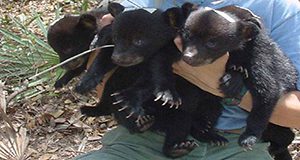
The Florida black bear and the coyote are both prevalent throughout the state of Florida. The number one cause of human-wildlife conflict for these two species are food attractants, including pet food. This 2-page fact sheet written by Kelley C. Anderson and Elizabeth F. Pienaar and published by the UF/IFAS Department of Wildlife Ecology and Conservation explains how to secure pets and pet food against both the Florida black bear and the coyote and keep people, pets, and wildlife safe.
edis.ifas.ufl.edu/uw437
Seguridad Alimentaria: Su cocina pasa la prueba?
Los adultos mayores corren un mayor riesgo de contraer enfermedades transmitidas por alimentos. Para ayudar a reducir el riesgo, es importante tener prácticas de manipulación de alimentos sanas. Cómo se compara su cocina? Written by Jennifer Hillan and Linda B. Bobroff, and published by the UF/IFAS Department of Family, Youth and Community Sciences, revised January 2018.
http://edis.ifas.ufl.edu/fy1163
Raising Healthy Children: Age Five
This publication is designed to give you some information about the social, mental, and physical development of your five-year-old child. This new 5-page fact sheet discusses nutrition, eating behaviors, healthy food options, cooking activities, and physical activity. Written by Claire Marie Fassett and Karla P. Shelnutt, and published by the UF/IFAS Department of Family, Youth and Community Sciences, January 2018.
http://edis.ifas.ufl.edu/fy1475
Microirrigation for Home Landscapes
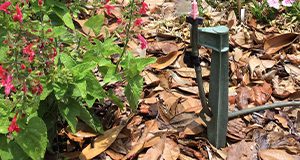 Microirrigation is a way to water plants using low pressure and low flowrates (usually 15 psi or less and 60 gph or less). Microirrigation systems can be easy to install above, on, or below the soil or mulch in landscape beds and are inexpensive to purchase. This 3-page fact sheet discusses types of microirrigation systems, benefits, design and installation, and maintenance. Written by Anne Yasalonis and Michael Dukes, and published by the UF/IFAS Department of Agricultural and Biological Engineering, October 2017.
Microirrigation is a way to water plants using low pressure and low flowrates (usually 15 psi or less and 60 gph or less). Microirrigation systems can be easy to install above, on, or below the soil or mulch in landscape beds and are inexpensive to purchase. This 3-page fact sheet discusses types of microirrigation systems, benefits, design and installation, and maintenance. Written by Anne Yasalonis and Michael Dukes, and published by the UF/IFAS Department of Agricultural and Biological Engineering, October 2017.
http://edis.ifas.ufl.edu/ae524
Prevencion de Caidas: Seguridad en el Hogar
La casa donde usted ha vivido la mayor parte de su vida ahora puede causarle problemas a medida que envejece. Lo bueno es que hay cambios que puede hacer para reducir el riesgo de caídas y mantener su casa un lugar seguro para vivir. Use la siguiente lista para identificar posibles áreas problemáticas en su casa. Repasado julio 2017. Written by Linda B. Bobroff, and published by the UF Department of Family, Youth and Community Sciences.
http://edis.ifas.ufl.edu/fy859
Plants and Youth: Designing and Building a Terrarium
A terrarium is a collection of small plants growing in a clear, usually enclosed, container. This three-page fact sheet walks you through the process of creating your own terrarium. Written by Amy Vu and Sydney Park Brown, and published by the Environmental Horticulture Department.
http://edis.ifas.ufl.edu/mg356
Hazardous Household Substances: Alternatives That Are Relatively Free of Toxic Effects
Some products that we use in our homes contain chemicals that are hazardous or toxic. We can reduce the potential for exposure to chemicals from household products and produce less hazardous household waste by using alternatives that are relatively free of toxic effects. This six-page fact sheet describes some alternatives that are relatively free of toxic effects. Written by Marie Hammer, Chris Koehler, and Randall Cantrell and published by the Department of Family, Youth and Community Sciences.
http://edis.ifas.ufl.edu/he791

